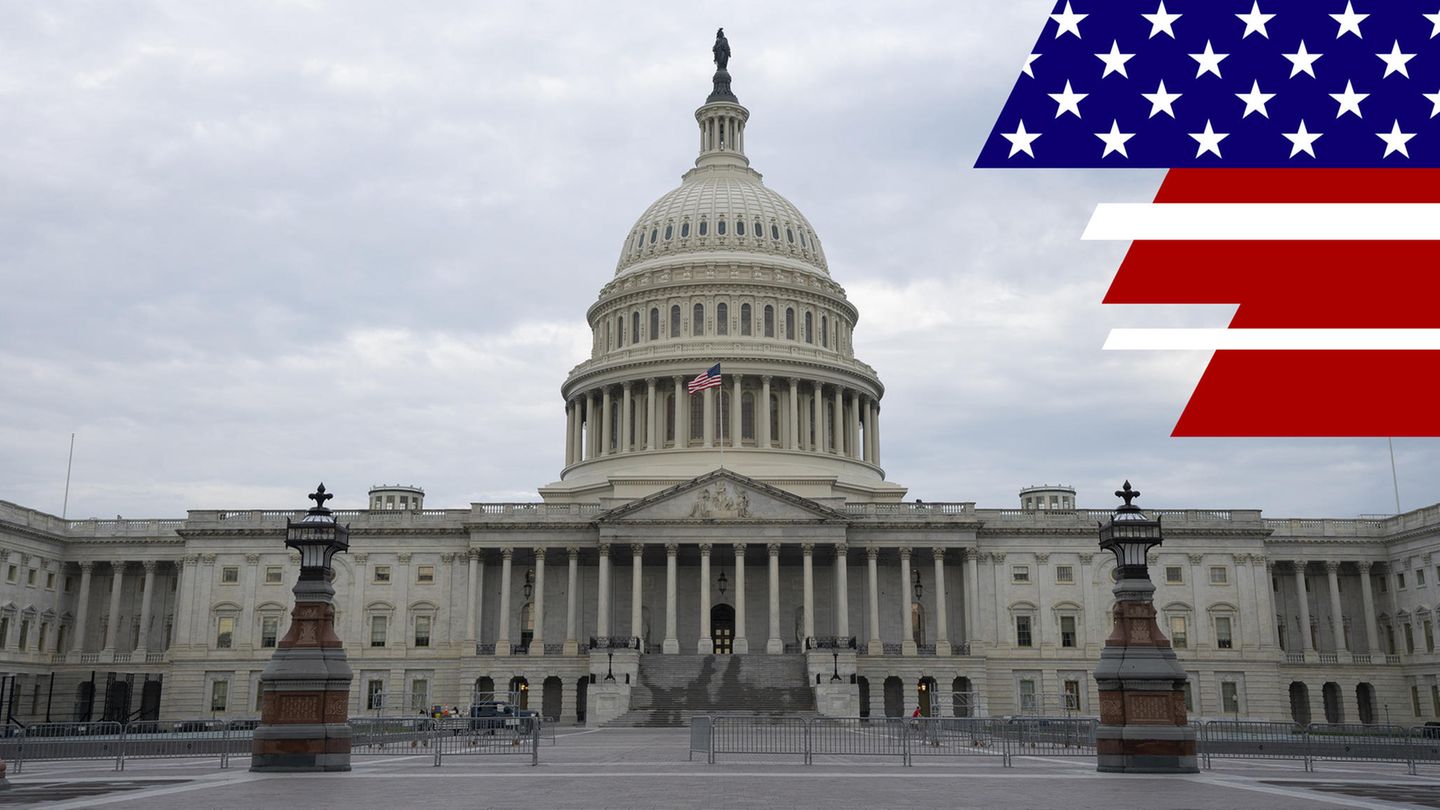Struggle for Parliament
Republicans secure majority in US Senate – race for lower house open
Copy the current link
The elections in the USA are not just about who will lead the country in the future. Control of both chambers of Congress is also at stake.
Long before it was clear who would win the US presidential election, the Republicans had already claimed a victory: They replaced the Democratic majority in the Senate. They won more than 50 of the 100 seats in the upper house of parliament. If the conservatives win all remaining close races, they would take 55 of 100 Senate seats. So far, the Democrats have had a wafer-thin majority of 51 to 49 seats in the Senate.
The Republicans achieved the decisive breakthrough in the Senate shortly after midnight (local time) with the victory of Senator Deb Fischer from Nebraska, who defended her seat against independent challenger Dan Osborn. They achieved another important victory in the race for an Ohio Senate seat, in which Bernie Moreno defeated the Democratic incumbent Sherrod Brown. Early on election night, Republicans were also able to win a Senate seat for West Virginia, laying a solid foundation for retaking the chamber.
A total of 34 of the 100 Senate seats were up for vote in this election, eleven of which were considered particularly competitive. Prominent senators from both parties successfully defended their seats. For example, Democrat Elizabeth Warren from Massachusetts, independent Bernie Sanders from Vermont and Republican Ted Cruz from Texas were re-elected. There is also a historic innovation in the chamber: For the first time, two black women will be represented at the same time – Lisa Blunt Rochester from Delaware and Angela Alsobrooks from Maryland.
There is still hope for the Democrats in the House of Representatives
However, it is still uncertain who will hold control of the House of Representatives in the future. All 435 seats were re-elected there. The Democrats hope to gain a majority in the chamber by gaining just a few seats and break the current Republican dominance of 220 to 212 seats.
The outcome of several races is still open. The count could take days or even weeks. The Democrats have so far been in the minority in the lower house of parliament. To achieve a majority, the party would have to win four seats previously held by Republicans.
But it is entirely possible that the House of Representatives will fall to the Democrats. Should this scenario occur, it would be the first time in a long time that the two chambers of Congress would be “swapped” simultaneously but in opposite directions. The divided distribution of power is already leading to blockade politics between the chambers, which makes effective legislation more difficult.
Well-known MPs defend mandates
Some prominent representatives of both parties in the House of Representatives have already been re-elected, including Democrats Nancy Pelosi and Alexandria Ocasio-Cortez and Republican hardliners Lauren Boebert and Marjorie Taylor Greene. The current Speaker of the House of Representatives, Republican Mike Johnson, was also able to defend his seat.
Regardless of whether Republican Donald Trump or Democrat Kamala Harris ultimately wins the presidency, the future president’s room for maneuver depends crucially on support in both chambers of Congress. Parliament not only controls the budget, but it has significant influence on legislation and also confirms high-ranking government positions such as ministers, ambassadors and judges.
DPA · AFP
cl
Source: Stern
I have been working in the news industry for over 6 years, first as a reporter and now as an editor. I have covered politics extensively, and my work has appeared in major newspapers and online news outlets around the world. In addition to my writing, I also contribute regularly to 24 Hours World.





